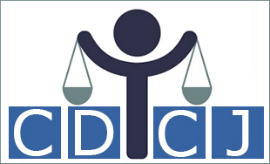Background - European Committee on Legal Co-operation (CDCJ)
Since its establishment in 1963, the European Committee on Legal Co-operation (CDCJ) is a standard-setting body, with a wide scope of competence in the field of public and private law.
The CDCJ, as a steering committee:
- Reports directly to the Committee of Ministers.
- Makes proposals of texts to the Committee of Ministers for their adoption.
- Makes proposals concerning the overall priorities in its fields of competence, future work and draft terms of reference.
With a view to achieving its mission, the CDCJ is assisted by its Bureau, consisting of seven CDCJ members who are responsible for handling its business between plenary meetings. The CDCJ meets in plenary session once a year, whilst its Bureau meets two or three times a year.
The governments of member states may designate one or more representatives, who will, as members of the CDCJ, carry out the work of the Committee and co-ordinate, at national level, all relevant elements of government policy. Such members are entitled to vote on matters arising within the CDCJ. Furthermore, the Parliamentary Assembly of the Council of Europe and the European Union may send representatives.
Representatives from non-member states of the Council of Europe or from intergovernmental or non-governmental international organisations may be admitted to the CDCJ as observers. Observers do not have the right to vote but may, on subjects under discussion and with the permission of the Chair of the Committee, make oral or written statements that may be put to vote, if put forward by a committee member.
As the CDCJ meets only once a year in plenary session, it may deal with a wide range of matters during its annual meeting. This consequently requires prior detailed preparation by the Bureau. The Bureau can make proposals to the CDCJ on matters such as how a draft text could be dealt with at the plenary meeting. Such proposals can, among other things, be based on written consultation with CDCJ delegations and, where appropriate, include suggestions for amendments to the draft text. The Bureau can also advise which questions it considers of sufficient importance to warrant discussion in the plenary meeting and, consequently, be placed on the agenda, or which questions should be adopted without debate.
Achievements
The CDCJ is, since 1963, responsible for the standard-setting activities of the Council of Europe in the field of public and private law. The achievements of the CDCJ are to be found, in particular, in the large number of binding or non-binding international legal instruments it has prepared for the Committee of Ministers (mainly treaties and recommendations).
The work of the CDCJ includes:
- The planning, supervision and organisation of the work, colloquies and conferences.
- The preparation and adoption of draft conventions, agreements, protocols or recommendations.
- The evaluation of these standard-setting activities.
- The adoption, for the Committee of Ministers, of opinions on legal matters coming within its competence.
- The adoption, for the Committee of Ministers, of proposals for the programme of activities of the CDCJ.
- The promotion and the facilitation of the functioning and implementation of the international instruments coming within its field of competence.
- The promotion and the facilitation of co-operation and understanding between member states.
- The preparation, in co-operation with the European Committee on Crime Problems (CDPC) and the Steering Committee for Human Rights (CDDH), of Council of Europe Conferences of Ministers of Justice, and, as appropriate, the follow-up of any decision taken by the Committee of Ministers subsequent to Conferences.
- The contribution to standard-setting work in respect of the protection of personal data and the right to private life, in close association with other relevant Council of Europe bodies.



